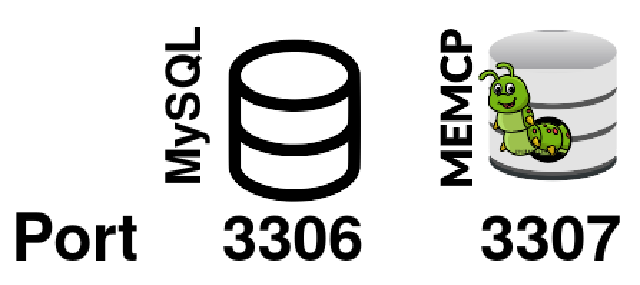Migration from MySQL and PostgreSQL: Difference between revisions
Jump to navigation
Jump to search
(Created page with "thumb|none|640x640px ===Connection to MemCP via MySQL Connector=== MemCP can be connected with any compatible MySQL connector: $db = new \PDO<code>"mysql:host=localhost;port=3307;dbname=system", 'root', 'admin');</code> echo $db->query("SELECT 'it works'")->fetchColumn(); // outouts: it works ===Import data from MySQL and PostgreSQL=== To import data from MySQL into MemCP, you have to perform the following command in<code>memcp</code>console: (l...") |
|||
| Line 6: | Line 6: | ||
// outouts: it works | // outouts: it works | ||
=== Connection to MemCP from PostgreSQL === | |||
For postgresql, just switch over to a mysql connector (odbc and PDO both support multiple databases) and send<code>SET syntax = "postgresql</code> (TODO: not yet implemented) | |||
Or, switch over to the [[SQL over REST|REST connector]]. | |||
===Import data from MySQL and PostgreSQL=== | ===Import data from MySQL and PostgreSQL=== | ||
To import data from MySQL into MemCP, you have to perform the following command in<code>memcp</code>console: | To import data from MySQL into MemCP, you have to perform the following command in<code>memcp</code>console: | ||
Revision as of 19:18, 20 November 2024
Connection to MemCP via MySQL Connector
MemCP can be connected with any compatible MySQL connector:
$db = new \PDO"mysql:host=localhost;port=3307;dbname=system", 'root', 'admin');
echo $db->query("SELECT 'it works'")->fetchColumn();
// outouts: it works
Connection to MemCP from PostgreSQL
For postgresql, just switch over to a mysql connector (odbc and PDO both support multiple databases) and sendSET syntax = "postgresql (TODO: not yet implemented)
Or, switch over to the REST connector.
Import data from MySQL and PostgreSQL
To import data from MySQL into MemCP, you have to perform the following command inmemcpconsole:
(load_sql "database" (stream "dump.sql")) /* for PostgreSQL mode, use load_psql instead */
When the sqldump is zipped, use:
(load_sql "database" (gzip (stream "dump.sql"))) /* for PostgreSQL mode, use load_psql instead */
or:
(load_sql "database" (xz (stream "dump.sql"))) /* for PostgreSQL mode, use load_psql instead */
The dumps can be created with mysqldumpor pg_dump.
